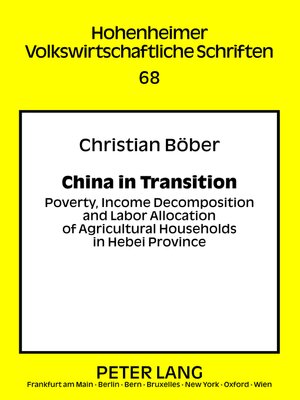China in Transition
ebook ∣ Poverty, Income Decomposition and Labor Allocation of Agricultural Households in Hebei Province · Hohenheimer Volkswirtschaftliche Schriften
By Michael Ahlheim

Sign up to save your library
With an OverDrive account, you can save your favorite libraries for at-a-glance information about availability. Find out more about OverDrive accounts.
Find this title in Libby, the library reading app by OverDrive.



Search for a digital library with this title
Title found at these libraries:
| Library Name | Distance |
|---|---|
| Loading... |
In China, inequality in social welfare is of rising political concern. This case study analyzes the determinants of well-being of rural households in Hebei using a secondary panel data set (1986 to 2006). One key question is how well-being was affected by institutional changes in times of societal transition. Based on population grouping, the author analyzes poverty and income development. The study reveals impacts of new possibilities to provide labor outside the own farm on the allocation of households' labor time and the stability of full- and part-time farming over time. The assessments ground on agricultural household models, microeconomic concepts of labor allocation, and welfare theories. Different methodologies, e.g. inequality decomposition or hazard analysis, are applied.







